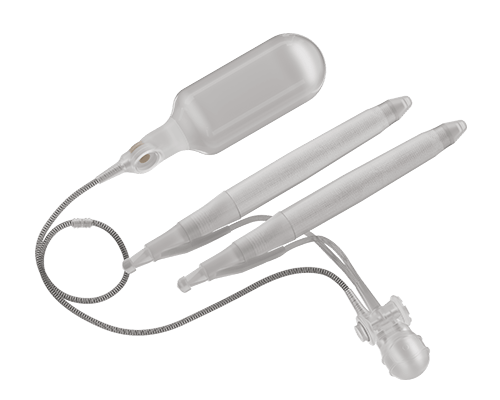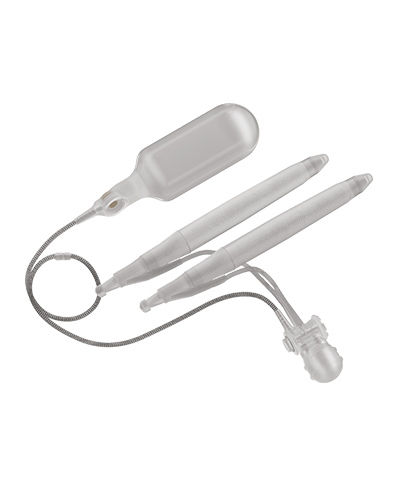
Penile Prosthesis Options When Oral ED Medications Fail

Understanding Erectile Dysfunction Beyond Oral Medications
Many men experiencing erectile dysfunction initially turn to oral medications but need alternative solutions when these treatments fail.
When Medications Fail
Many men experiencing erectile dysfunction (ED) initially turn to oral medications as a first line of treatment. However, when these pharmacotherapies fail to produce satisfactory results, or if they are contraindicated, penile prostheses represent a highly effective and durable alternative solution.
Common Scenarios
This scenario is frequently encountered in men who have undergone prostate surgery, such as radical prostatectomy, or in those managing systemic conditions like diabetes mellitus, which can adversely affect neurovascular function critical for normal erections.
Effective Alternatives
Penile implants, also known as penile prostheses, offer consistent and reliable outcomes, particularly for individuals in whom oral medications have proven insufficient or have intolerable side effects.
Why Consider a Penile Implant?
Penile implants offer consistent and reliable outcomes when oral medications have failed or caused intolerable side effects.
Key Benefits for Patients:
- Predictable and patient-activated erections: Implants allow for an erection on demand, providing consistent results each time
- Restoration of sexual spontaneity and intimacy: Unlike medications that may require planning, implants allow for spontaneous sexual activity, which can significantly improve natural intimacy
- High satisfaction rates: Studies consistently report high rates of satisfaction among both patients and their partners following penile prosthesis implantation
Advanced Solutions by Rigicon
Introducing Infla10® Pulse™ Series

Dynamic Inflatable Technology
This type of implant is designed to offer expansion in both length and girth, aiming for a more natural feel, enhanced comfort, and precise user control over the erection.
Maximum Girth Expansion
Up to 46 mm expansion in girth, providing a fuller and more natural feel. Both cylinders expand simultaneously in length and girth, ensuring consistent and proportional enhancement.
Length Expansion
The Infla10® Pulse™ AX model offers exceptional length expansion of up to 25%3 relative to the original length, depending on the patient's anatomy.
Three-Piece System
Consists of two dynamic inflatable cylinders placed inside the penis, a fluid-filled reservoir placed in the abdomen, and a pump positioned discreetly in the scrotum.

Frequently Asked Questions
Common questions about penile implant options when oral ED medications no longer work.
What are penile implants, and how do they work?
Penile implants are medical devices that are surgically placed entirely within the penis and scrotum. They are designed to enable men with ED to achieve an erection. Inflatable implants, the most common type, typically consist of: 1. A pair of cylinders implanted in the penis, 2. A pump placed in the scrotum, and 3. A reservoir containing saline placed in the abdomen. The operation is straightforward: Squeezing and releasing the pump moves saline from the reservoir into the cylinders, creating an erection. Deflating the pump returns the saline to the reservoir, making the penis flaccid.
Who is a good candidate for a penile implant?
Men who have not had success with, or cannot use, oral ED medications or other non-surgical treatments (like vacuum erection devices or penile injections) are generally considered excellent candidates for penile implants. This often includes individuals with: post-prostate cancer treatment ED (surgery or radiation), diabetes-related ED, cardiovascular disease affecting erectile function, or Peyronie's disease that has led to persistent ED.
Will the implant feel natural?
Most men and their partners report that the erections achieved with a penile implant feel natural. The implant provides: normal sensation in the penis, ability to achieve orgasm and ejaculate (provided these functions were intact before surgery), and natural appearance when flaccid or erect. The penis will appear flaccid and normal when not inflated, ensuring discretion.
How long does it take to recover from surgery?
Recovery times can vary, but typically follows this timeline: 1-2 days hospital stay (often outpatient), a few days to resume non-strenuous activities, 1-2 weeks to return to desk work, and 4-6 weeks to avoid sexual intercourse to allow for complete healing. Your surgeon will provide specific guidance based on your individual recovery progress.
How long do penile implants last?
Modern penile implants are designed for durability and can last for many years. While it's difficult to predict the exact lifespan for an individual patient, many implants function effectively for 10-15 years or even longer1. Some patients maintain their original implant for 20+ years. Regular follow-up appointments with your urologist are important for monitoring the device and ensuring optimal long-term outcomes.
Does insurance cover penile implants?
Penile implant surgery is generally considered a medically necessary procedure for treating organic erectile dysfunction that has not responded to less invasive treatments. Coverage considerations include: Medicare often covers the procedure, and many private insurance plans provide coverage. Coverage requirements typically include documented failure of less invasive treatments, physician certification of medical necessity, and prior authorization.
References
- Wilson, S. K., & Gross, M. S. (2023). Celebrating 50 years of penile implants. International Journal of Impotence Research, 35(5), 596–600. DOI: 10.1038/s41443-023-00663-y
- Hebert, K. J., & Kohler, T. S. (2019). Penile Prosthesis Infection: Myths and Realities. World Journal of Men's Health, 37(3), 276–287. DOI: 10.5534/wjmh.180123
- Rigicon® Infla10® Inflatable Penile Prosthesis Data on file.
Ask Your Surgeon About Rigicon
Schedule a consultation to discuss whether Rigicon's innovative implant options are right for you when oral ED medications no longer work.
Find ResourcesDiscover More

Clinical Evidence
Peer-reviewed publications and clinical evidence supporting Rigicon's prosthetic urology solutions

Prosthetic Urology FAQs
Evidence-based FAQs on artificial urinary sphincters, penile and testicular prostheses—grounded in peer-reviewed research and the latest international guidelines.

Rigicon Blog
Explore expert insights on penile implants, erectile dysfunction, artificial urinary sphincters, and men's sexual health.